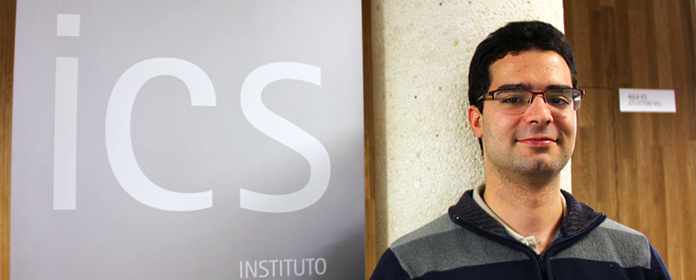A researcher of the University seeks to prevent alcohol consumption in minors through games in non-playful environments.
Pedro de la Rosa, from Institute for Culture and Society, will develop an application to be tested in schools.

PHOTO: Manuel Castells
A research of the University of Navarra seeks to prevent alcohol consumption in minors through gamification, the use of game elements -vatars, levels or virtual rewards- in non-playful environments. This is the goal of the thesis of Pedro de la Rosa, PhD student of the project Education of the affectivity and human sexuality of the Institute for Culture and Society (ICS), who plans to create an application with game elements and test it in schools.
For De la Rosa it is important that games are implemented in real life and not in an environment where they are perceived as a mere video game. "It is necessary to create occasions where young people can train skills to resist social pressure, control their impulses or apply for financial aid ", he explained. As an example, he mentioned the case of "weight control and physical exercise applications, which implement a system of points, personal challenges or challenges between friends".
With this tool, it seeks to "enhance the effectiveness of traditional health Education campaigns". In addition, he added that the benefits of research can be extended to other common problems of adolescence: "The behaviors that are sought promote also help to prevent other problems such as bullying or the consumption of other substances".
285,000 young people between 14 and 18 years of age initiated into alcohol in 2015.According to data of the Ministry of Health, Social Services and Equality, 285,700 students between 14 and 18 years of age have started drinking alcohol during 2015. The agency warns that the habit of "binge" drinking has spread in a short period of time, located mainly at the weekend. Of the 58.5% who had consumed alcoholic beverages in the last 30 days, almost all (99.8%) had drunk on weekends, while only 39.3% had done so on weekdays. In terms of frequency, 23% of the students had drunk every weekend.
Regarding the preventive measures that the government is studying to implement, Pedro de la Rosa affirms that "legislation alone will not be able to achieve notable effects if it is not accompanied by efforts to raise awareness and Education among the population". For researcher it is necessary to combat the perception that drinking alcohol is a low-risk activity, which he blames on "the normalization of its consumption among minors".
From agreement with the PhD student of the ICS, it is intended to create a consensus among the main agents involved in its implementation, "so it is expected that the law will have some impact, similar to that of the ID card driving points in reducing mortality from traffic accidents".
Pedro de la Rosa, who belongs to the project 'Education of affectivity and human sexuality' of the ICS, has recently obtained a financial aid of the Chair Asisa-European University for his research, in the framework of the grants that the institution gives to projects on Biomedical Sciences and Health Sciences to strengthen the links between academia and society.
